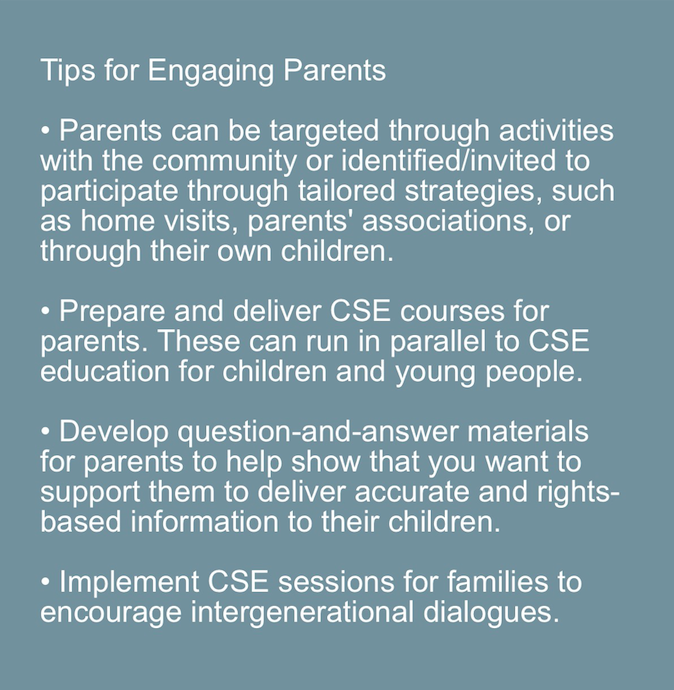Alongside governments and communities, parents have a pivotal role to play in providing good quality CSE. A key strategy to address potential opposition to providing CSE in a community is to listen to parents’ concerns and to incorporate their suggestions, where feasible or appropriate. In parallel, strategies to sensitize parents and provide them with accurate information on the
benefits of such education are critical. Education systems are increasingly also working to facilitate conversations about sexuality education between children and their parents.
Parents and other adult relatives play a fundamental role in children's and young people´s education. Ensuring they understand, support and are involved in the delivery of CSE is essential to ensuring long-term results. While some parents may claim they should be the only source of information on sexuality for their children, most of them value external support that
teaches them how to discuss issues pertaining to sex with their children, how to react to difficult situations (e.g. when a child watches porn on the Internet or is bullied on social media), and how to access and provide accurate information. (IPPF, 2017)
The cooperation and support of parents and families needs to be sought from the outset and regularly reinforced. It is important to emphasize the primary concern of promoting the safety and well-being of children and young people that is shared by schools, communities and parents. CSE programmers can find it useful to ask themselves the following questions when working to engage parents:
-
To what extent are the aims and objectives of school-based CSE compatible with parents’ hopes, fears and concerns?
-
If the objectives are generally compatible, how can collaborative approaches be developed, supported and maintained? If not, what are the sources of difference and how might they be addressed?
-
How should these issues be monitored and evaluated?
(Source: UNFPA – 2015, The Evaluation of Comprehensive Sexuality Education Programmes).

(Source: IPPF, 2017 -- Deliver + Enable Toolkit)
